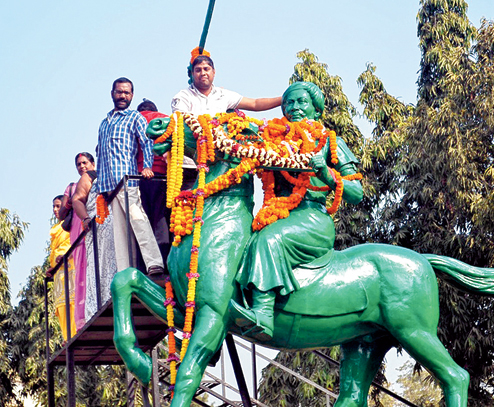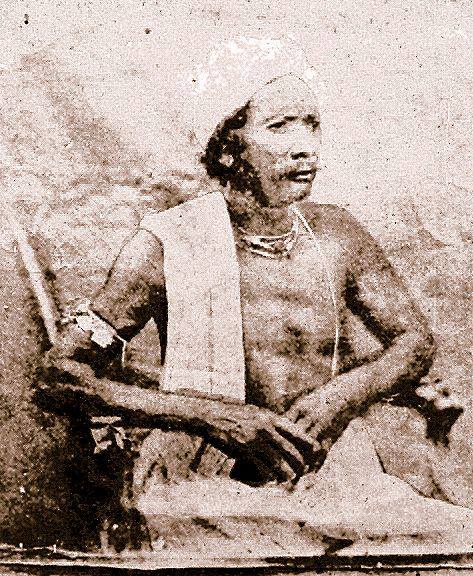Veer Surendra Sai was the child of the historic Revolution of 1857, as Napoleon was the child of the French Revolution of 1789. The heroic achievement of Surendra Sai and his uncommon sacrifice for the cause of his people have few parallels in history. His role in shaping the cause of the Revolution of 1857 and 1858 in the hill tracts of Western Orissa was highly inspiring. The British became a formidable power in the World after the victory of the Crimean War (1856) and their success in crushing the Revolution in India in 1858. Veer Surendra Sai carried on an uncompromising war against the forces of imperialism till 1862. These four years were the momentous period for the last phase of the Indian Revolution and Surendra Sai was the torch bearer
Surendra Sai was a born rebel and an uncompromising enemy of the British Raj from his young age. His revolution against the British commenced from 1827 when he was only eighteen years of age and continued till 1862 when he surrendered and even after that, until he was finally arrested in 1864 – a total period of 37 years. He suffered imprisonment in Hazaribagh Jail for 17 years in course of his revolutionary career and after his final arrest for another term of 20 years including his detention of 19 years in the remote Asirgarh hill fort till he breathed his last there.
He was not only a great revolutionary throughout his life but also an inspiring leader of the people. Surendra Sai espoused the cause of the downtrodden tribal people who were being exploitated by the higher caste Hindu and who became tools in the hands of the British for the establishment of their political power in Sambalpur. The aim of Surendra Sai was to drive the British out of Sambalpur.
The Indian Revolution collapsed by the end of 1858 and law and order was restored by the British throughout India. But Surendra Sai could not be suppressed and he continued his revolution. The military resources of the British were pulled up against him and the brilliant Generals like Major Forster, Capt. L. Smith and others earned credit in suppressing the rebellion elsewhere in India were brought to Sambalpur to stamp out his revolution. But all attempts failed and Surendra Sai succeeded in foiling the skill and strategy of the British for a long time. Major Forster, the reputed general who was vested with full military and civil power and the authorities of a Commissioner to suppress Surendra Sai and his followers, proved discredited and removed by the British authority in 1861 after three years of his services in Sambalpur. His successor Major Impey could realise the futility of military operation against Veer Surendra Sai. He had no hesitation to declare that Surendra Sai was never defeated and would never be defeated. This remark of the Deputy Commissioner of Sambalpur shows the strength and greatness of Surendra Sai. In fact his glorious struggle after the supression of the Indian Revolution of 1857-58 against a vastly superior power for long four years is a unique achievement. The British not only seized the entire food-stock of the rebels but also stopped all resources of the supply of food and other necessaries of life for them. But that could not damp the fighting spirit of Surendra Sai.
Veer Surendra Sai lives in his glory as a great martyr. He fought almost single-handed against the most formidable forces of Imperialism, staking all that was near and dear to him and suffered untold miseries althrough his life


